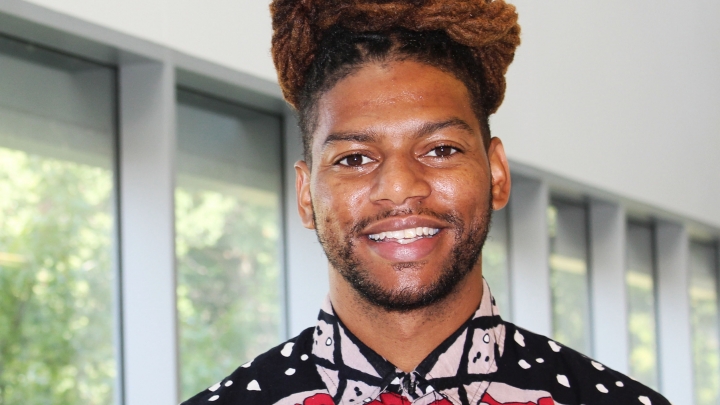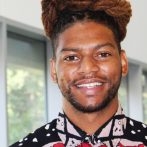
The classroom is where students gain the knowledge and learn the skills necessary and proper to achieve success as engineers in a global society. Yet the scholarship on teaching and learning in engineering has largely ignored how disciplinary knowledge and racialized power have been co-constructed to minoritize and exclude.
James Holly, Jr., Assistant Professor of Mechanical Engineering, spoke on the need for faculty to have a robust understanding of social inequity, to utilize cultural knowledge as an asset, and to leverage insights from perspectives of racially-marginalized peoples in engineering classrooms at The Grainger Foundation Frontiers of Engineering 2022 Symposium of the National Academy of Engineering. Dr. Holly, Jr.’s scholarship has focused on amplifying how White supremacist culture has predominated engineering education and how this has harmed Black students and tainted the research methods used to analyze their experiences.
Dr. Holly, Jr. presented two concepts he employs to counteract anti-Blackness in engineering, namely explication of mechanisms of Whiteness and promoting Black intellectualism as a method of reconstructing what it means to know and do engineering. The session included discussion about the cultural characteristics (e.g., depoliticization, structural racism, romanticized rigor) of engineering education that established and have maintained inequity and exclusion since its inception.
“While research on the historic ways difference, discrimination, and power have shaped engineering practice is growing, we can use more insight about how to mitigate these issues within courses,” said Dr. Holly, Jr.
The Grainger Foundation Frontiers of Engineering 2022 Symposium of the National Academy of Engineering brought together eighty-four highly accomplished early-career engineers, nominated by fellow engineers or organizations, to discuss Microbes, Conversational AI, Technology and Racial Justice and Equity, and the role of hydrogen in a “carbon-free future.” The symposium is being held from Sept. 21–23, 2022, in Seattle, Washington.
